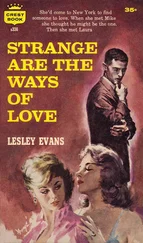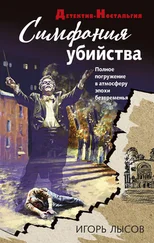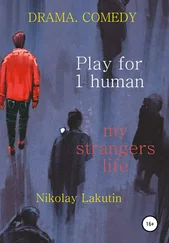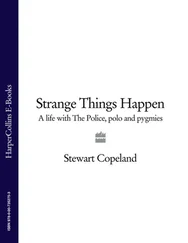Douglas Hofstadter - I Am a Strange Loop
Здесь есть возможность читать онлайн «Douglas Hofstadter - I Am a Strange Loop» весь текст электронной книги совершенно бесплатно (целиком полную версию без сокращений). В некоторых случаях можно слушать аудио, скачать через торрент в формате fb2 и присутствует краткое содержание. Жанр: Прочая документальная литература, на английском языке. Описание произведения, (предисловие) а так же отзывы посетителей доступны на портале библиотеки ЛибКат.
- Название:I Am a Strange Loop
- Автор:
- Жанр:
- Год:неизвестен
- ISBN:нет данных
- Рейтинг книги:4 / 5. Голосов: 1
-
Избранное:Добавить в избранное
- Отзывы:
-
Ваша оценка:
- 80
- 1
- 2
- 3
- 4
- 5
I Am a Strange Loop: краткое содержание, описание и аннотация
Предлагаем к чтению аннотацию, описание, краткое содержание или предисловие (зависит от того, что написал сам автор книги «I Am a Strange Loop»). Если вы не нашли необходимую информацию о книге — напишите в комментариях, мы постараемся отыскать её.
I Am a Strange Loop — читать онлайн бесплатно полную книгу (весь текст) целиком
Ниже представлен текст книги, разбитый по страницам. Система сохранения места последней прочитанной страницы, позволяет с удобством читать онлайн бесплатно книгу «I Am a Strange Loop», без необходимости каждый раз заново искать на чём Вы остановились. Поставьте закладку, и сможете в любой момент перейти на страницу, на которой закончили чтение.
Интервал:
Закладка:
If you doubt dogs have this, then what about chimpanzees? What about two-year-old humans? In any case, the emergence of this kind of reflexive symbolic structure, at whatever level of sentience it first enters the picture, constitutes the central germ, the initial spark, of “I”-ness, the tiny core to which more complex senses of “I”-ness will then accrete over a lifetime, like the snowflake that grows around a tiny initial speck of dust.
Given that most grown dogs have a symbol for dog, does a dog know, in some sense or other, that it, too, belongs to the category dog ? When it looks at a mirror and sees its master standing next to “some dog”, does it realize that that dog is itself? These are interesting questions, but I will not attempt to answer them. I suspect that this kind of realization lies near the fringes of canine mental ability, but for my purposes in this essay, it doesn’t really matter on which side dogs fall. After all, this book is not about dogs. The key point here is that there is some level of complexity at which a creature starts applying some of its categories to itself, starts building mental structures that represent itself, starts placing itself in some kind of “intellectual perspective” in relationship to the rest of the world. In this respect, I think dogs are hugely more advanced than mosquitoes, and I suspect you agree.
On the other hand, I suspect that you also agree with me that a dog’s soul is considerably “smaller” than a human one — otherwise, why wouldn’t we both be out vehemently demonstrating at our respective animal shelters against the daily putting to “sleep” of stray hounds and helpless puppies? Would you condone the execution of homeless people and abandoned babies? What makes you draw a distinction between dogs and humans? Could it be the relative sizes of their souls? How many hunekers would dogs have to have, on the average, for you to decide to organize a protest demonstration at an animal shelter?
Creatures at the sophistication level of dogs, thanks to the inevitable flipping-around of their perceptual apparatus and their modest but nontrivial repertoire of categories, cannot help developing an approximate sense of themselves as physical entities in a larger world. (Robot vehicles in desert-crossing contests don’t spend their precious time looking at themselves — it would be as useless as spinning their wheels — so their sense of self is considerably less sophisticated than that of a dog.) Although a dog will never know a thing about its kidneys or its cerebral cortex, it will develop some notion of its paws, mouth, and tail, and perhaps of its tongue or its teeth. It may have seen itself in a mirror and perhaps realized that “that dog over there by my master” is in fact itself. Or it may have seen itself in a home video with its master, recognized the recording of its master’s voice, and realized that the barking on the video was its own.
And yet all of this, though in many ways impressive, is still extremely limited in comparison to the sense of self and “I”-ness that continually grows over the course of a normal human being’s lifetime. Why is this the case? What’s missing in Fido, Rover, Spot, Blackie, and Old Dog Tray?
The Radically Different Conceptual Repertoire of Human Beings
A spectacular evolutionary gulf opened up at some point as human beings were gradually separating from other primates: their category systems became arbitrarily extensible. Into our mental lives there entered a dramatic quality of open-endedness, an essentially unlimited extensibility, as compared with a very palpable limitedness in other species.
Concepts in the brains of humans acquired the property that they could get rolled together with other concepts into larger packets, and any such larger packet could then become a new concept in its own right. In other words, concepts could nest inside each other hierarchically, and such nesting could go on to arbitrary degrees. This reminds me — and I do not think it is a pure coincidence — of the huge difference, in video feedback, between an infinite corridor and a truncated one.
For instance, the phenomenon of having offspring gave rise to concepts such as “mother”, “father”, and “child”. These concepts gave rise to the nested concept of “parent” — nested because forming it depends upon having three prior concepts: “mother”, “father”, and the abstract idea of “either/or”. (Do dogs have the concept “either/or”? Do mosquitoes?) Once the concept of “parent” existed, that opened the door to the concepts of “grandmother” (“mother of a parent”) and “grandchild” (“child of a child”), and then of “great-grandmother” and “great-grandchild”. All of these concepts came to us courtesy of nesting. With the addition of “sister” and “brother”, then further notions having greater levels of nesting, such as “uncle”, “aunt”, and “cousin”, could come into being. And then a yet more nested notion such as “family” could arise. (“Family” is more nested because it takes for granted and builds on all these prior concepts.)
In the collective human ideosphere, the buildup of concepts through such acts of composition started to snowball, and it turns out to know no limits. Our species would soon find itself leapfrogging upwards to concepts such as “love affair”, “love triangle”, “fidelity”, “temptation”, “revenge”, “despair”, “insanity”, “nervous breakdown”, “hallucination”, “illusion”, “reality”, “fantasy”, “abstraction”, “dream”, and of course, at the grand pinnacle of it all, “soap opera” (in which are also nested the concepts of “commercial break”, “ring around the collar”, and “Brand X”).
Consider the mundane-seeming concept of “grocery store checkout stand”, which I would be willing to bet is a member in good standing of your personal conceptual repertoire. It already sounds like a nested entity, being compounded from four words; thus it tells us straightforwardly that it symbolizes a stand for checking out in a store that deals in groceries. But looking at its visible lexical structure barely scratches the surface. In truth, this concept involves dozens and dozens of other concepts, among which are the following: “grocery cart”, “line”, “customers”, “to wait”, “candy rack”, “candy bar”, “tabloid newspaper”, “movie stars”, “trashy headlines”, “sordid scandals”, “weekly TV schedule”, “soap opera”, “teenager”, “apron”, “nametag”, “cashier”, “mindless greeting”, “cash register”, “keyboard”, “prices”, “numbers”, “addition”, “scanner”, “bar code”, “beep”, “laser”, “moving belt”, “frozen food”, “tin can”, “vegetable bag”, “weight”, “scale”, “discount coupon”, “rubber separator bar”, “to slide”, “bagger”, “plastic bag”, “paper bag”, “plastic money”, “paper money”, “to load”, “to pay”, “credit card”, “debit card”, “to swipe”, “receipt”, “ballpoint pen”, “to sign”, and on and on. The list starts to seem endless, and yet we are merely talking about the internal richness of one extremely ordinary human concept.
Not all of these component concepts need be activated when we think about a grocery store checkout stand, to be sure — there is a central nucleus of concepts all of which are reliably activated, while many of these more peripheral components may not be activated — but all of the foregoing, and considerably more, is what constitutes the full concept in our minds. Moreover, this concept, like every other one in our minds, is perfectly capable of being incorporated inside other concepts, such as “grocery store checkout stand romance” or “toy grocery store checkout stand”. You can invent your own variations on the theme.
Читать дальшеИнтервал:
Закладка:
Похожие книги на «I Am a Strange Loop»
Представляем Вашему вниманию похожие книги на «I Am a Strange Loop» списком для выбора. Мы отобрали схожую по названию и смыслу литературу в надежде предоставить читателям больше вариантов отыскать новые, интересные, ещё непрочитанные произведения.
Обсуждение, отзывы о книге «I Am a Strange Loop» и просто собственные мнения читателей. Оставьте ваши комментарии, напишите, что Вы думаете о произведении, его смысле или главных героях. Укажите что конкретно понравилось, а что нет, и почему Вы так считаете.












